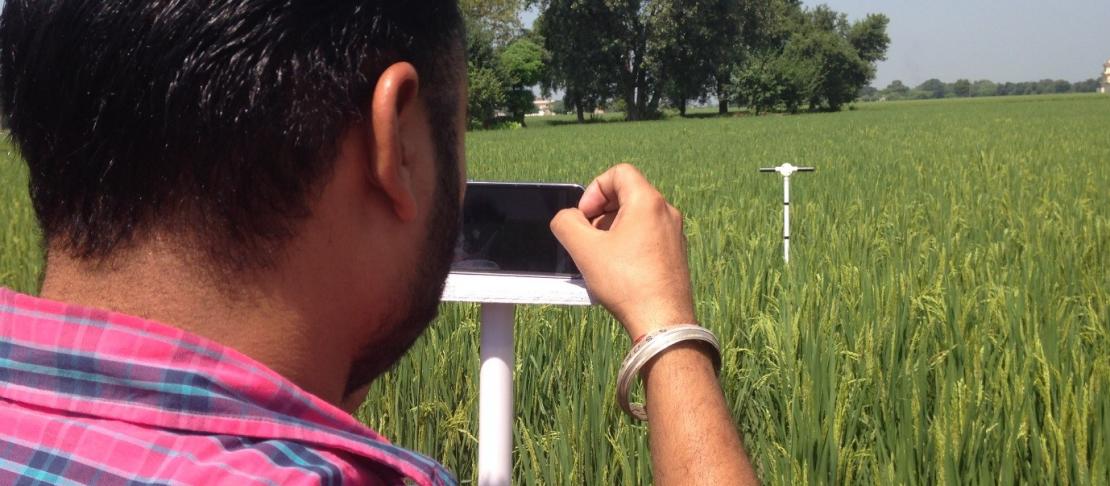Can technological innovations help improve agricultural micro-insurance?

Can remote sensing and other technologies help improve the design of agricultural micro-insurance products that are appealing to both farmers and insurance companies?
Agricultural micro-insurance products often come in the form of index insurance, which suffer from basis risk and limited capacity to detect and perfectly compensate for individual crop losses. Farmers often claim incurring a loss whereas the insurance product does not pay out. In addition, farmers do not feel engaged in the insurance process, given that indices can be distant and often abstract from the perspective of a farmer. These shortcomings can result in insurance companies being hesitant to offer micro-insurance products and farmers being hesitant to use those products when they are available.
The CGIAR Research Programs on Climate Change, Agriculture and Food Security (CCAFS), the CGIAR Research Program on Policies, Institutions and Markets (PIM), along with the International Food Policy Research Institute (IFPRI), organised a workshop to analyse whether remote sensing and other technologies can help improve the design of agricultural micro-insurance products that are appealing to farmers and insurance companies alike.
The workshop held at IFPRI, Washington, DC during 13-14, October 2016, saw participation from 34 members representing academic, research, insurance, reinsurance and government sector organizations. The participants deliberated on the key principles and guidelines required for application of these technologies when designing insurance products. Potential research project proposals to identify and fill knowledge gaps were also discussed. Some of the specific questions for discussion included the proposed technologies applicability in all agronomic environments, especially those with small farmers with high biodiversity, utilization of these technologies, cost effectiveness, and relevancy of these tools and techniques in developing countries in Africa south of the Sahara and South Asia.
These topics were discussed in the following seven sessions of the workshop:
- Agricultural Micro-insurance: Challenges, Opportunities, and Limitations
- Major Micro-Insurance Programs
- Satellite Data
- Unmanned Aerial Vehicles (UAV) Data
- Digital Geo-Referenced Photography
- Crop Modelling and Big Data Analysis
- Workshop Conclusions and Closing session
While the agriculture insurance sector has created some huge opportunities for these technologies, there is a need to build an evidence base through comparative performance evaluation studies of these technologies to support and evaluate their role in the field of micro-insurance. Moreover, evidence is needed of whether and when the bundling of different technologies can be more effective than applying satellite data, UAVs, geo-referenced photography, crop modelling or machine learning alone.
Read more
- Workshop website: Technological Innovations and Agricultural Micro-insurance Workshop
- Workshop agenda and presentations: Workshop: Technological Innovations and Agricultural Micro-insurance Program
- Blog: Testing of remote sensing technologies for crop insurance in India
Berber Kramer is Research Fellow-Markets, Trade and Institutions at IFPRI. Paresh B. Shirsath is Postdoctoral Fellow- Climate Change Adaptation at CCAFS South Asia. Pramod Kumar Aggarwal is South Asia Regional Programme Leader at CCAFS South Asia. Miguel Robles is Research Fellow-Markets, Trade and Institutions at IFPRI.
